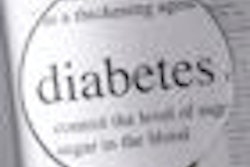A drug approved by the U.S. Food and Drug Administration (FDA) for treating periodontal disease could also significantly reduce the risk of osteoporosis and cardiovascular disease in postmenopausal women, according to a study in the Journal of the American Dental Association (March 2011, Vol. 142:3, pp. 262-273).
Subantimicrobial-dose doxycycline (SDD) is the only drug approved by the FDA for treating chronic inflammatory periodontal disease.
For the study, researchers from several U.S. university medical centers randomly assigned SDD or placebo tablets in a double-blind study to 128 postmenopausal women with periodontal disease and osteopenia for a two-year clinical trial period.
The study results showed that inflammation and collagen-destructive enzymes due to periodontal disease were reduced significantly in women who took SDD tablets. In addition, these women showed significantly reduced blood levels of molecular biomarkers of bone destruction that are indicators of systemic osteoporosis.
"The drug not only reduced their local periodontal disease over a two-year time period, but also reduced risk factors for bone loss around their hips and spine," said Lorne Golub, DMD, a professor at Stony Brook University and a principal investigator of the study, in a press release.
Ostopenia, a precursor and milder form of osteoporosis, doesn't require medication.
"We were reducing the risk of conversion of osteopenia to osteoporosis, which is typically treated with bisphosphonates which can produce side effects," said Golub said.
A major benefit of SDD is that it has minimal side effects, according to Marvin Slepian, MD, a cardiologist at the University of Arizona and another co-author. The hope is that with SDD, doctors will be able to prevent development of osteoporosis without putting patients at risk for debilitating side effects.
The researchers also found highly significant reductions in the blood levels of the biomarker known as C-reactive protein, a chemical molecule that indicates impending cardiovascular disease.
Women more than five years postmenopausal who took SDD tablets for two years showed significantly increased blood levels of high-density lipids, known as HDL or "good" cholesterol. HDL cholesterol is known to reduce risk of heart attack.
No major drugs exist today to raise good cholesterol except niacin, Dr. Slepian said, which is very hard to take and can have uncomfortable side effects for many individuals.
"We are taking this to the next level to understand the mechanism," Dr. Slepian said.



















